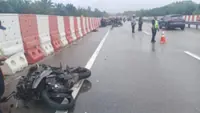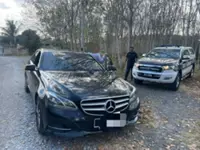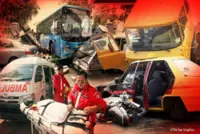PETALING JAYA: Safety concerns with car users using unsuitable child safety seats have led the Malaysian Institute of Road Safety Research (Miros) to launch a system that helps select the right seats.
Called the FitSURE, Miros said the initiative aims to help parents and guardians select appropriate child safety seats (CRS) that can be properly installed in specific car models.
"FitSURE is a CRS compatibility assessment program for various vehicle models to ensure correct and safe installation, thereby reducing the risk of injury in accidents.
"FitSURE helps address this issue by providing clear information based on a thorough and comprehensive installation assessment," Miros said in a statement on Thursday (March 20).
Miros said its advisory is based on studies showing that improper installation of CRS could increase the risk of injury to child passengers during accidents.
“Choosing and installing the right type of child safety seat is crucial in ensuring the safety of child passengers.
"Although there are various types of CRS available on the market, not all of them can be properly installed in every car model," it said.
Results of the assessments are accessible via www.aseancap.org/crs to allow car owners to check which CRS models have been tested for compatibility with their vehicle type, Miros said.
Its director-general Prof Dr Siti Zaharah Ishak described FitSURE as an important initiative in ensuring the proper selection and installation of CRS by those with children.
Through this assessment, parents can make more informed decisions in choosing the best CRS to ensure their children's safety in the vehicle," she said in the statement.
So far, six vehicle models have been evaluated under FitSure which include the Perodua Alza, Perodua Myvi, Proton Saga, Toyota Vios, Toyota Veloz, and Honda City.
Miros said that it welcomed participation from vehicle manufacturers and CRS distributors who are interested in getting evaluated to offer a wider choice to car owners.
Although the Road Transport Act 1987 provides for the usage of CRS for private vehicles, it was only made mandatory beginning Jan 1 2020.
However, its enforcement has been put on hold indefinitely following the implementation of the movement control order during the Covid-19 pandemic.





